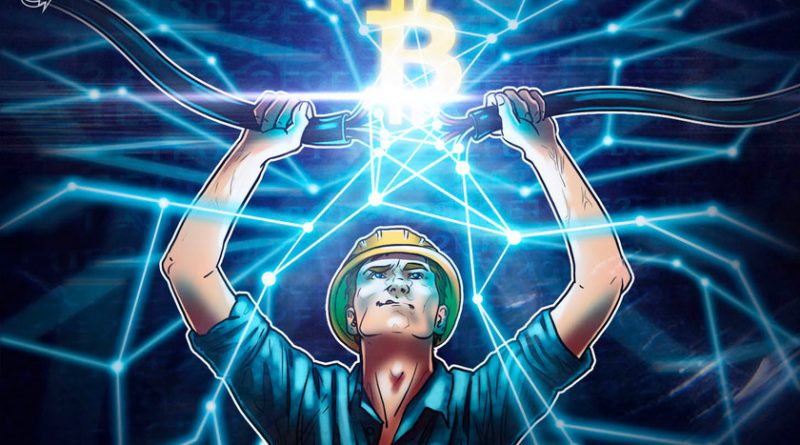Democratizing Bitcoin’s hash rate takes center stage at mining summit
Bitcoin’s bull market is having a dramatic effect on demand for hardware resources as miners look to ramp up production.
Bitcoin (BTC) mining continues to ramp up following the successful May 11 halving, but growing industry concentration could undermine the “democratization of hash rate,” according to a panel presentation at this year’s Mining and Investment Summit.
Hosted by Matrixport and sponsored by Bitmain, the 2020 Mining and Investment Summit was held virtually Tuesday morning, bringing together the “leading companies in the fields of cryptocurrency mining and digital asset financial services.”
In a presentation called “Bringing Bitcoin Mining to a Broader Market,” Thomas Heller of HASHR8 provided an update on the mining industry, including trends in ASIC demand.
Heller indicated that the market is currently experiencing an “ASIC supply squeeze,” with a “large group of eager miners looking to buy.” He indicated that hardware suppliers Bitmain, MicroBT and Canaan are already taking orders for March to July 2021.
Commenting on the so-called Bitcoin supply crunch, Heller’s presentation indicated:
“North American public and private companies continue to accumulate bitcoin, as well as expand their bitcoin mining operations. Leading to a supply crunch for BTC itself.”
A rush to accumulate Bitcoin by institutions and corporations has contributed to a rise in mining revenue, which, in turn, has caused a surge in demand for new and secondhand ASIC miners. Large miners are ramping up their operations amid the Bitcoin supply squeeze and are looking to bring as much hash rate as possible within their borders.
These trends could move the industry’s hash rate further away from democratization as China continues to dominate. As Heller notes, two-thirds of Bitcoin’s hash rate is concentrated in China-based mining farms.
China is generally believed to have one of the lowest breakeven rates for miners in the world. As of June, it cost between $5,000 to $6,000 to mine 1 Bitcoin in China, assuming an electricity cost of $0.04 kilowatts per hour. Globally, the Bitcoin mining breakeven rate could be as high as $8,500 in some jurisdictions.
Bitcoin mining is generally considered to be less accessible to individual miners due to the costs and resources involved. Over the years, the mining industry has come to be dominated by weighted pools, or groups of cryptocurrency miners that combine their computational resources. Although pool distribution isn’t as concentrated as it was before, in the last 12 months, three pools accounted for 45.3% of the hash rate.

Location and individual ownership of hash rate are important considerations when thinking about decentralization, Heller said on Tuesday.
HASHR8 recently announced the launch of Compass, a platform that matches Bitcoin miners with verified hosting facilities. The goal of Compass is to democratize mining profitability and bring more small-scale miners into the fold.




